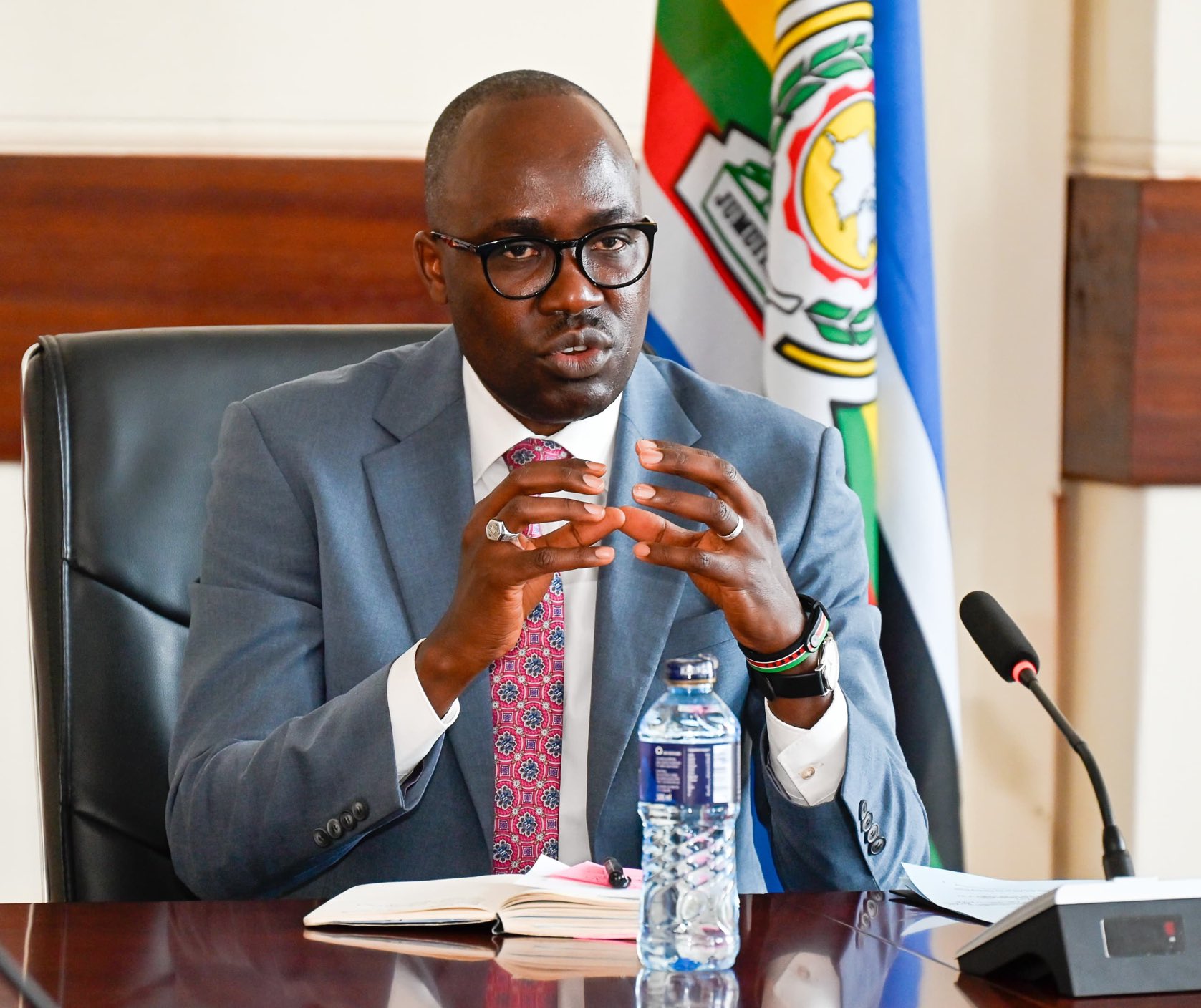Kenya's Foreign Affairs Principal Secretary, Korir Sing’Oei has called on citizens to remain calm amid growing attention surrounding a move by the United States to reassess Kenya’s designation as a major non-NATO ally.
The status, which was granted in June last year by President Joe Biden’s administration, is now under review through a bill introduced in the US Senate, raising new questions about Kenya's global alliances and governance record.
Sing’Oei was responding on social media platform X to comments by Senior Counsel Paul Muite, who had listed a number of critical points raised in the proposed legislation. These included the Kenyan government’s alleged connections to Sudan’s Rapid Support Forces (RSF), sale of arms and gold, abductions and extrajudicial killings, corruption involving Chinese projects, and the reassessment of the Non-NATO ally status.
“No need to be too excited SC @Paul_Muite. The issues canvassed in the congressional bill will be comprehensively addressed taking into account Kenya’s sovereignty and interests,” Sing’Oei stated.
Muite had described the bill and its contents as “Massive,” pointing to the serious tone it takes in scrutinizing Kenya’s current global alignments and domestic conduct.
The bill, introduced by Senator James Risch, chair of the Senate Committee on Foreign Relations, requires a full review of Kenya’s Non-NATO designation within 90 days of the bill’s passage.
It mandates that the Secretary of State, in coordination with other top-level officials, including the Secretary of Defense, Treasury, and the Director of National Intelligence, begin the process.
The move is seen as part of Washington's growing unease with Kenya’s strengthening ties with countries that the US considers rivals, namely China, Russia, and Iran. According to the bill, the review aims to examine Kenya’s military and economic engagements with those nations, including any joint operations, arms trade, and training activities carried out since June 2024.
The proposed legislation follows earlier remarks from Risch, who in May cautioned that Kenya’s evolving relationship with China was raising alarms.
“Widened diplomacy with America’s greatest competitor is not an alliance; it is a risk for the US to assess,” he said.
One focal point of concern is Kenya’s involvement in China’s Belt and Road Initiative (BRI), a massive global infrastructure strategy which the US sees as a geopolitical tool by Beijing.
Kenya is a major player in this initiative, having undertaken large-scale projects such as the Mombasa-Naivasha standard gauge railway and improvements to port and cargo infrastructure, all funded and built with support from Chinese entities.
Additionally, the Nairobi Expressway, which connects Jomo Kenyatta International Airport to the city’s central business district, stands as a visible symbol of China’s influence in Kenya’s infrastructure development.
The bill also calls for a detailed assessment of Kenya’s trade and investment relations with China, including the size and terms of its debt under the BRI and other bilateral commercial engagements.
Beyond geopolitical concerns, the legislation highlights issues of human rights and financial governance.
The Trump administration had previously expressed concern over the Kenyan government's transparency and respect for civil liberties under President William Ruto’s leadership.
The review process, if approved, could have major implications for Kenya’s strategic status and international relations. However, Sing’Oei maintains that the country's sovereignty and national interest will guide how these matters are addressed with the US.

